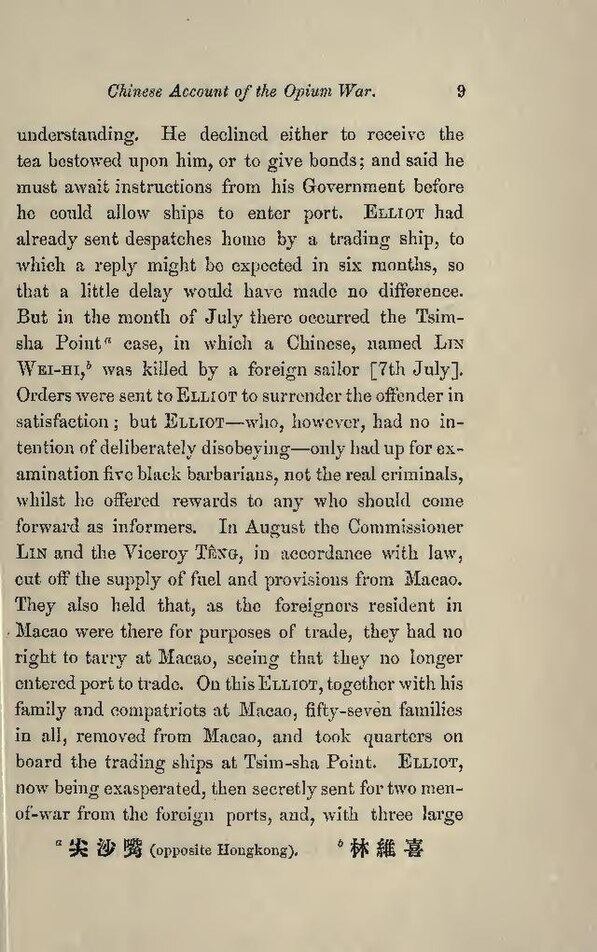understanding. He declined either to receive the tea bestowed upon him, or to give bonds; and said he must await instructions from his Government before he could allow ships to enter port. Elliot had already sent despatches home by a trading ship, to which a reply might be expected in six months, so that a little delay would have made no difference. But in the month of July there occurred the Tsimsha Point[1] case, in which a Chinese, named Lin Wei-hi,[2] was killed by a foreign sailor [7th July]. Orders were sent to Elliot to surrender the offender in satisfaction; but Elliot–who, however, had no intention of deliberately disobeying-only had up for examination five black barbarians, not the real criminals, whilst he offered rewards to any who should come forward as informers. In August the Commissioner Lin and the Viceroy Têng, in accordance with law, cut off the supply of fuel and provisions from Macao. They also held that, as the foreigners resident in Macao were there for purposes of trade, they had no right to tarry at Macao, seeing that they no longer entered port to trade. On this Elliot, together with his family and compatriots at Macao, fifty-seven families in all, removed from Macao, and took quarters on board the trading ships at Tsim-sha Point. Elliot, now being exasperated, then secretly sent for two men-of-war from the foreign ports, and, with three large
Page:Chinese account of the Opium war (IA chineseaccountof00parkrich).pdf/25
